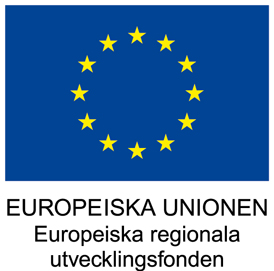How can digital health services be made more inclusive? The Center for Gender Research wants to take a closer look at this in a study for DigitalWell. Therefore, participants are now being sought from three user groups that are often overlooked: Transgender people, immigrant women and men from the working class.
Digitization can create opportunities for more inclusive and equal healthcare. At the same time, there are several studies that show that digitization can also increase health-related inequalities if social categories such as gender, ethnicity and class are not taken into account in innovation processes.
- They are not so much focused on those particular issues, but more on how good digitization can be for our health. But there are some problems around expectations about who the services are for, says Sebastian Mohr, senior lecturer at the Center for Gender Research at Karlstad University.
Insights for more diversity
Therefore, together with research colleague Tara Mehrabi, within the framework of DigitalWell, he will take a closer look at what challenges transgender people, immigrant women and men from the working class may face in their contacts with healthcare. The purpose of the pilot study is to create insights that make it possible to develop digital healthcare solutions for more diversity and equality.
- All three user groups can have different challenges in their contacts with care. It can concern both issues of identity as well as psychological and physical obstacles, says Sebastian Mohr.

It could be, for example, that trans people do not exist at all in systems that only see men or women, or that interaction with immigrant women is affected by language barriers or stereotypical images that do not take into account the individual's competence. For men from the working class, both technical shortcomings and the attitude one has towards their own health can be an obstacle.
- For example, it can be difficult for working-class men to talk about certain things. You may have problems with an enlarged prostate and have difficulty urinating, but do not bring it up. And because they don't say anything, the healthcare staff may also not think that the problems are that big, says Sebastian Mohr.
We are now looking for people from the three user groups who want to participate in the pilot study, which will be done in two phases during the spring. The first is a group call with five to six people within the respective user group. The questions are about what challenges you can encounter when seeking access to care, as well as what digital tools are used to overcome these challenges.
The second phase is based on individual interviews, with the aim of finding out more about how the participants feel that healthcare is changing through digital solutions.
Companies are invited to test services
There are also opportunities for entrepreneurs and companies developing digital health services to participate. In the pilot study, the participants will get to test digital health platforms and give feedback on what advantages and disadvantages they think they have.
- It provides the opportunity to develop a service that includes more user groups. It is an important step in every innovation process and makes you aware of the challenges that exist. But there may also be those who are interested in developing a specific service for, for example, immigrant women or transgender people, says Sebastian Mohr.
Are you interested in participating in the pilot study or do you want to know more?
Here you will find more information and contact details


